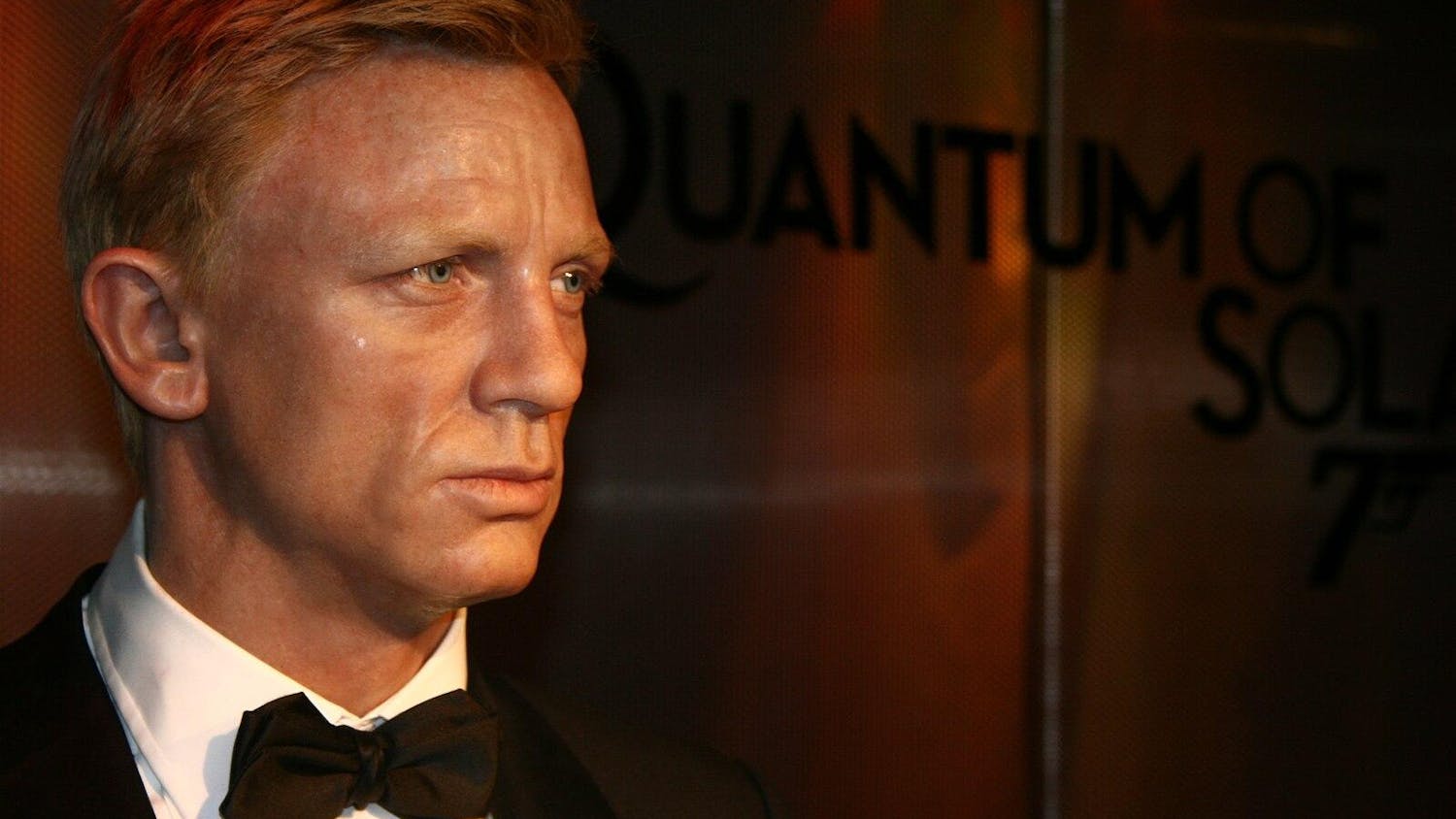Cat Power (real name: Chan [pronounced "Shawn"] Marshall) is totally different from soul-singing legend Al Green.
Aside from the obvious contrasts in race, gender and generation, the latter made his name confidently belting and crooning sweaty love tunes and was once a notorious lady-killer. The former has been known to abruptly dash off the stage at her own concerts while sobbing, unable to handle the gaze and judgments of her audience. How then, does her latest studio release, "The Greatest," sound kind of like an Al Green record?
For starters, she's borrowed some of his band. Bravely stepping away from her minimalist, Joni Mitchell-inspired catalog, Marshall casts off the light indie rock backing and beefs up her piano, guitar, and trademark voice with Green's former guitarist, Mabon "Teenie" Hodges, and other reputable Memphis studio musicians from her new backing group, the Memphis Rhythm Band.
On paper, a pairing between a bunch of aging R&B/soul studio musicians and a tortured indie songstress sounds like a sitcom. Somehow, these two comically unrelated forces would get united and have to make a record together, but first they would have to get beyond their artistic and cultural differences with an awkward, campy and unfulfilling album instead of just letting hilarity ensue.
Admittedly, this is - at times - true on "The Greatest," but more often the band is the single ingredient that makes Cat Power's latest album her most ambitious, accessible and rewarding to date.
The Marshall repertoire of old is still there. Her guitar and piano playing, though lessened in significance with the addition of a full backing band, are still commendably simple. They function well as garnish, but her voice, a cross between '60s Bob Dylan and Portishead's Beth Gibbons, is still her best asset. On tracks like "Could We" and the tropical-Americana "Islands," Marshall sounds cloudy and delicate, like she is whispering an important secret through a big cloud of gray smoke.
She sings like she's been through a lot, and at first, you want to give her a hug -for her sake. She's so disarming, though, so recognizable and honest, that by the end of "The Greatest" her sadness becomes yours. You still want to give her a hug, but mainly so that she can hug back.
In her past, Cat Power's songs were good and bad for the same reason: the music was generally minimal (some guitars, a piano, occasionally some strings), so you could always hear her voice. With the instrumentation downplayed so much, though, you ended up only listening to her voice. The songs turned stale and indistinguishable, and like getting sick of your favorite food by eating it too much, her voice would lose its pathos and beauty.
The Memphis Rhythm Band plays instruments better than Marshall does, but they don't always keep the songs from getting stale. When "The Greatest" sounds like the Memphis Rhythm Band sort of including Chan Marshall, it's just as much a problem as when she's all you can hear.
On "The Moon," for example, Marshall is only audible in the gaps of Hodges' and bassist Leroy "Flick"'s (Hodges' brother) oscillating wall of sound. But the music isn't good enough to stand by itself, and more importantly, you didn't pay to hear the Memphis Rhythm Band; you want to hear Chan Marshall sing.
When you can - when the band knows their role and Marshall's vocals are able to sit atop their musical base - it succeeds in righting a wrong that has long plagued her songs. Rick Steff's fluid keyboards and Hodges' restrained guitar reverb course throughout "After it All" and add depth to a song that on any of her other records would have sounded thin. Similarly, the bluesy bass and hoedown-ready strings keep "Empty Shell" from slipping into the introverted and depressing tune with no replay value that it would have become on 2003's "You Are Free."
But beyond coloring them, the Memphis Rhythm Band injects Cat Power's songs with an energy that they lacked, forcing her to step out of her stage-frightened persona and adopt a more confident one. On "Living Proof," Marshall sounds feisty and even seductive, grabbing the mic like a lounge singer winking at the audience.
On the rocking finale, "Love and Communication" - a song that Marshall never could have made without this band - guitars run all over the place, joining intermittent keyboard twinkles. Slasher-movie string moans in perfect balance, turning Marshall from lonely singer-songwriter into a band leader.
Whereas the Cat Power records of old would ask listeners to take shot after shot of her heart-wrenching catharsis, the Memphis Rhythm Band has tempered it, condensing it into a manageably-sized pill. Her voice is still husky and foggy, and there are still hints of the sadness that marks her past work, but there is confidence there as well.
And this is ultimately album's most Al Green-esque quality. Chan Marshall doesn't sound like someone abandoned and broken, but someone on the rebound, someone capable of the triumph suggested by the album's title. She's still lonely, but she no longer thinks that she'll die that way.





